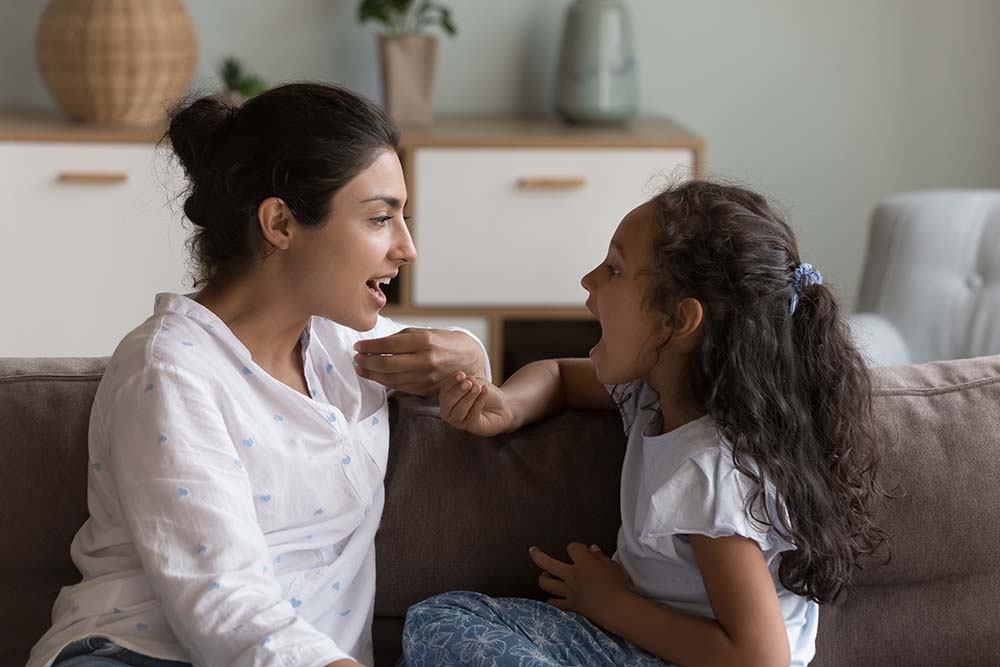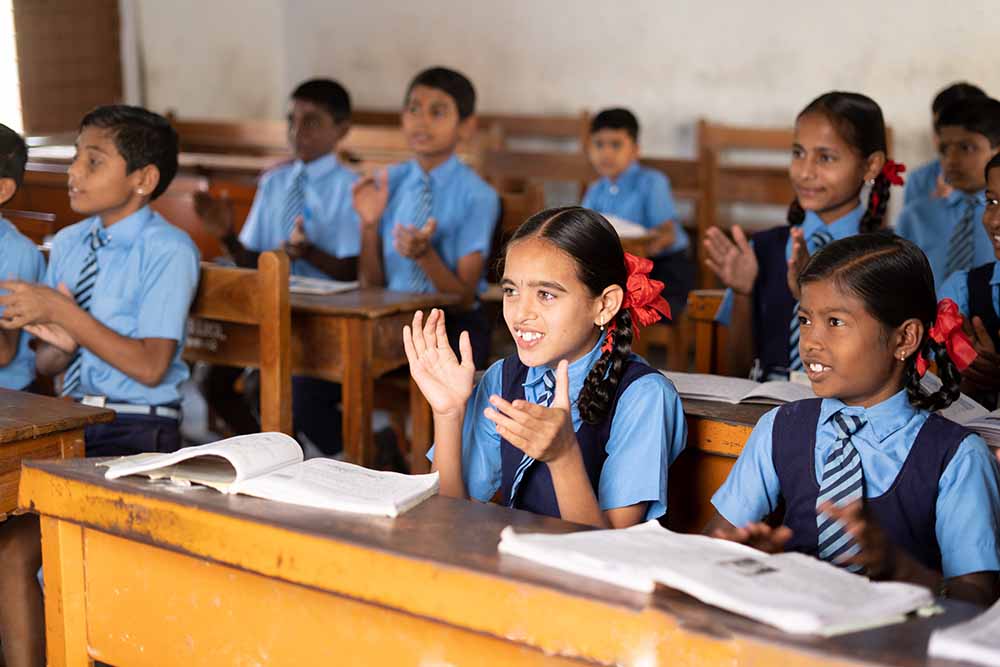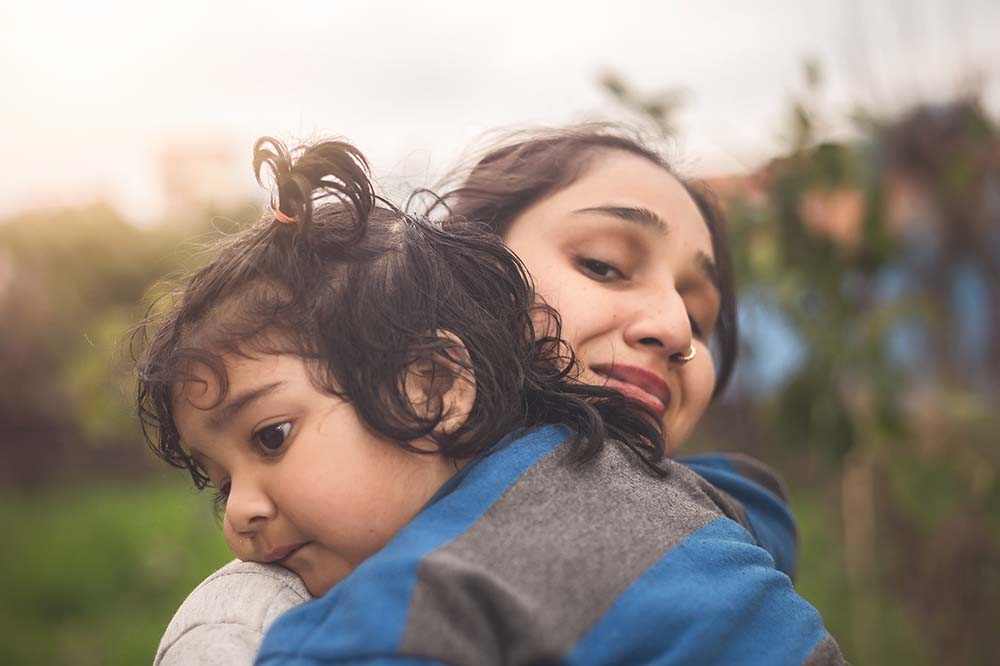A child’s mind is like a slice of bread; it soaks in everything poured on it, whether or not they can comprehend it. It is, thus, essential to be sensitive about what is told to them while at home, but in the outside world, nothing is in our hands. Home and school become the spaces where kids spend most of their time and tend to pick up on attitudes or habits they are exposed to. Therefore, it is necessary for a child’s development to integrate the subject of body image within school curriculums and help build positive body awareness at home.
Body image is not just associated with weight; it can also relate to someone’s facial features, hair type, height, skin colour or body as a whole. A child’s perception of what is ‘normal’ can come from different sources – family, social media, cultural, social and community opinions, which is why it’s even more crucial to start having conversations with the child at a young age to help them form a positive relationship with their self-image.

Home schooled
A Counsellor (Student Care) of a reputed school explains that there is a rise in the body positivity movement, because of the damage that has been done by presenting perfect bodies in an unrealistic way in social media and pop culture.
“We all know about photoshopping, but try explaining this to a young child who learns primarily through visual stimuli. It is beneficial to have a conversation with children early on about being comfortable with their bodies, and to focus on other attributes that matter more, such as respect (self, others, world), empathy and integrity, as these are internal and can be learnt, while bodies are genetic, and the aspiration should be to be healthy and not just look ‘good’ based on social expectations.
"The benefits of this are that young people will develop healthy self-esteem and confidence that will help them combat any residual negative body image exposure as they grow up. Having conversations about how one feels about one’s body, not talking about ones’ body in a negative way in front of your child, or referring to people as fat, short, etc., can help them build an understanding of positive body image. Call any family member/friend out (politely) if they make negative references. We also need to address the fact that a lot of this is targeted at the female gender, so it also becomes an integral part of gender sensitivity and equality.”
Urmila Patil, primary teacher, Podar International School, and mother of two daughters (nine and 18 years of age), believes that, “As a parent and a teacher, it becomes important to seed in a positive attitude towards one’s body, as early as in kindergarten. My approach is, instead of appreciating the child (using adjectives) for physical attributes, appreciate their character traits/attitudes. For instance, try telling your child, you have a cheerful personality rather than saying you are beautiful. Also, talk to your child about other children’s character traits, your friend is interesting instead of your friend is taller than you.
"Educate your child from a young age about their anatomy, and discuss with them what is bad touch and good touch (five to eight years of age). Teach them about their intimate parts, personal hygiene and introduce them to sexual health (eight years and above). Parents should talk about these subjects without any reluctance and taboo.”
The Counsellor adds, “Sexuality, relationship education and body positivity are closely connected. Puberty is when sudden changes happen and teens become more conscious about their bodies, making comparisons and worrying about whether they are developing appropriately. Parents need to take the effort to understand their children, know their friends the shows they are watching and the books they’re reading. Don’t lecture them, but have a healthy natural curiosity about their lives so that you can address anything that may be a concern.”

Body positivity to be inculcated as a part of academic curriculum
The Counsellor believes that educators/teachers play a big role in shaping children’s belief systems regarding body positivity. “Most schools have life skills on their curriculums (or are supposed to) and this can be taught/discussed from an early age. Social emotional learning should also be integrated into the syllabus. Teachers need to be sensitised to refrain from referring to children from the perspective of their bodies to help develop their personalities/character (‘hey fatty, shorty’ etc). Avoid complimenting students on their looks and include all kinds of children in activities. Nip any bullying in the bud. Have an inclusive approach and create opportunities for all.”

How to tackle situations at home and school when kids get bullied/teased
“At home, parents can ensure that it’s addressed immediately, for instance in the case of physical differences, say, even amongst twins. Always focus on values and attributes – respect for all (including oneself), empathy and integrity and look for ways to reward those. If your child is being bullied in school, report it immediately. Teach your children resilience and adaptability. Have a conversation each time it happens to ensure that your child isn’t internalising the wrong messages. Approach a counsellor if you feel you are being unable to get through to your child or if their peer relationships are negative and have a strong influence,” recommends the counsellor.
Ms. Patil added, “Always talk to the child about their positive attributes, so that they are confident about themselves and can be firm with others when they are being teased or called names based on their physical appearance. Always empower your child rather than advising or suggesting. It is always better to listen to them talk, so that the kid feels heard and knows that they can approach you when facing such issues.”